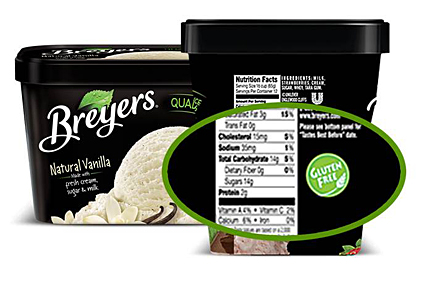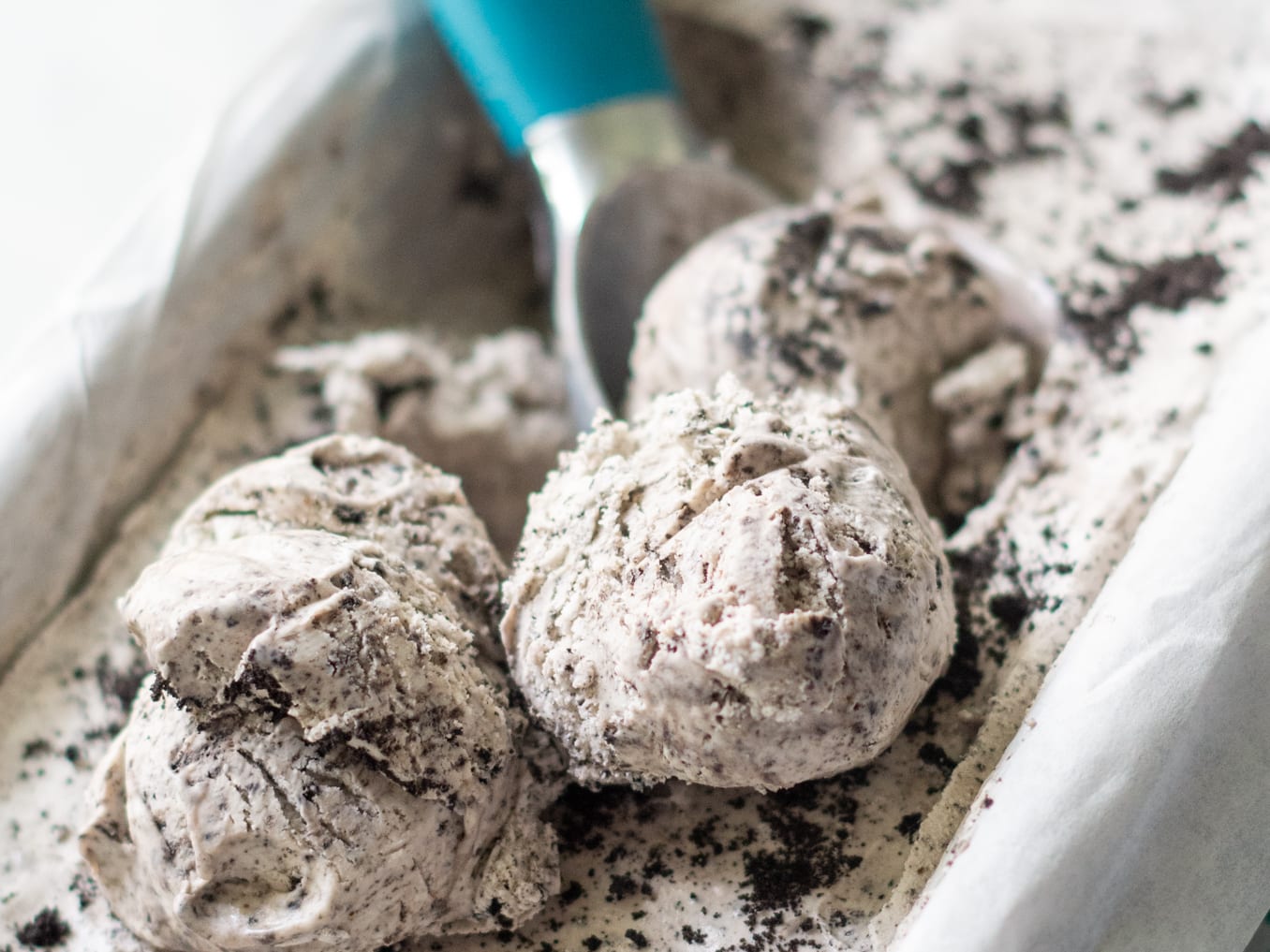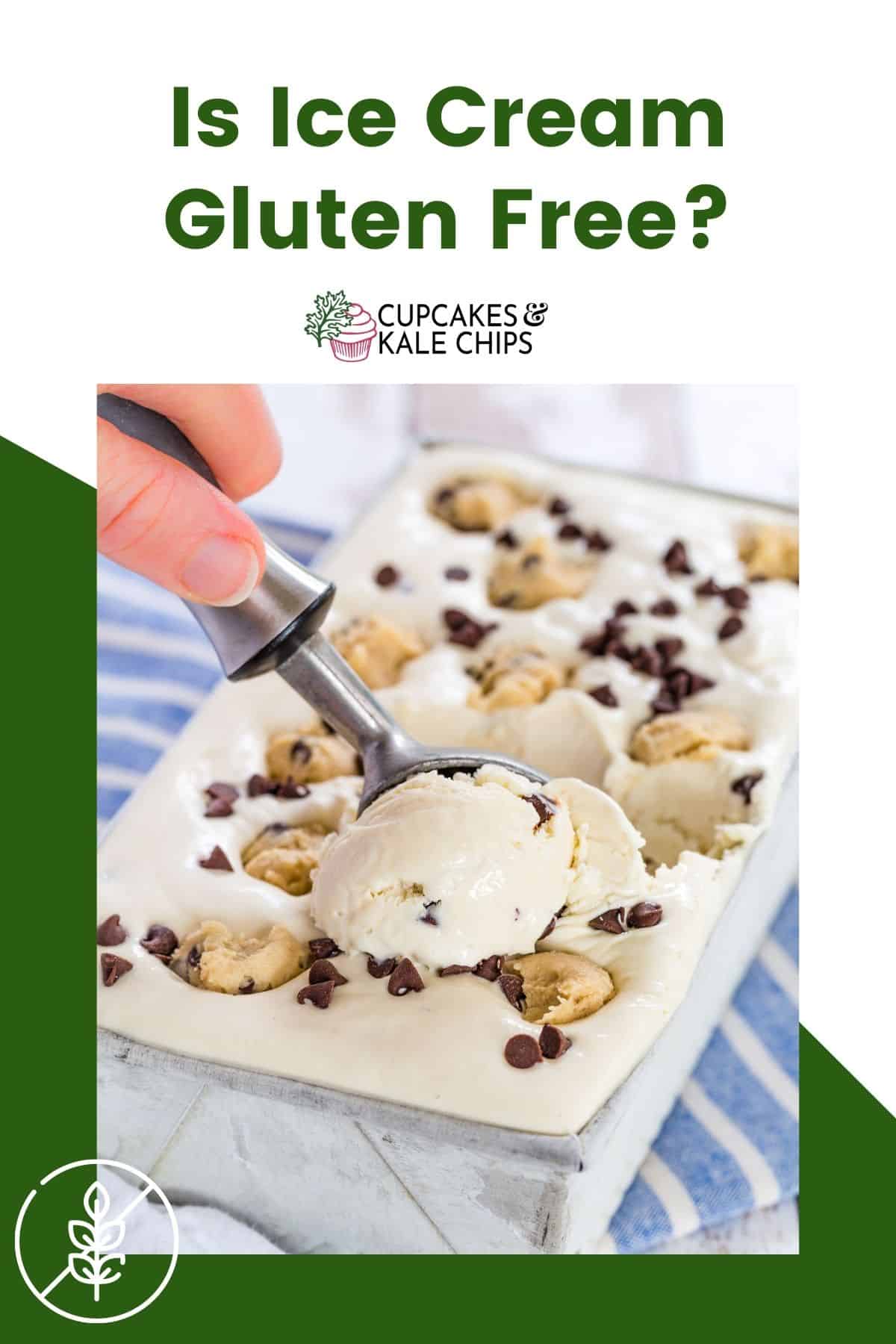What Is Gluten And Its Role In Food

Gluten is a protein composite found in wheat and other grains such as barley and rye. It gives elasticity to dough, helping it rise and maintain its shape. In food products, gluten plays a crucial role in providing texture, structure, and stability. However, for individuals with gluten intolerance or celiac disease, consuming gluten can lead to adverse reactions and damage to the small intestine. It is important for those individuals to identify gluten-containing ingredients and opt for gluten-free alternatives to maintain a healthy diet.
I Definition Of Gluten And Its Relation To Food Products
Gluten is a protein composite found in grains such as wheat, barley, and rye. It plays a crucial role in food products by providing texture, structure, and stability. When mixed with water, gluten forms a sticky network that gives dough its elasticity, allowing it to rise and maintain its shape during baking. This is why gluten-containing grains are commonly used in bread, pasta, and other baked goods. However, for individuals with gluten intolerance or celiac disease, consuming gluten can lead to adverse reactions and damage to the small intestine. Therefore, it is essential for those individuals to identify gluten-containing ingredients and opt for gluten-free alternatives in their diet.
II Common Sources Of Gluten In Various Food Items
Common sources of gluten in various food items include grains such as wheat, barley, and rye. Wheat, in particular, is widely used in food products and can be found in bread, pasta, cereals, and baked goods. Barley is often used in malted beverages, such as beer, as well as in soups and stews. Rye is commonly used in bread and certain types of whiskey. Gluten may also be present in sauces, dressings, and processed foods as a result of additives or cross-contamination during manufacturing. It is important for individuals with gluten intolerance or celiac disease to carefully read food labels and choose gluten-free alternatives.
Does Ice Cream Contain Gluten?

Ice cream can contain gluten depending on the ingredients and manufacturing processes involved. While basic flavors like strawberry, vanilla, chocolate, or coffee are usually gluten-free, it is important to review the ingredient list for any additives, starches, or flavorings that might contain gluten. Some ice cream flavors, like rocky road or moose tracks, are at a higher risk for containing gluten but can be made gluten-free. When buying ice cream, look for products that are labeled “gluten-free” or have gluten-free certifications to ensure a safe option for individuals with gluten intolerance or celiac disease.
I Understanding The Ingredients In Ice Cream
Understanding the ingredients in ice cream is crucial for determining its gluten content. While basic flavors like strawberry, vanilla, chocolate, or coffee are often gluten-free, it is essential to review the ingredient list for any additives, starches, or flavorings that might contain gluten. Some common sources of gluten in ice cream include thickeners, colorings, and flavorings such as barley malt syrup. It is important to be vigilant and look for ice creams that are labeled “gluten-free” or have gluten-free certifications to ensure a safe option for individuals with gluten intolerance or celiac disease.
II Exploring Potential Sources Of Gluten In Ice Cream
Exploring potential sources of gluten in ice cream is crucial for individuals with gluten intolerance or celiac disease. While the basic ingredients of ice cream such as milk and cream are naturally gluten-free, there are other additives and flavorings that may contain gluten. Some common sources of gluten in ice cream include thickeners, colorings, and flavorings like barley malt syrup. These ingredients can be used to enhance the texture, appearance, and taste of ice cream. It is important to carefully read the ingredient list and look for any potential sources of gluten before consuming ice cream. Additionally, cross-contamination during the manufacturing process can also be a concern.
Gluten-free Ice Cream Options

There are a variety of gluten-free ice cream options available for those who need to avoid gluten. Many brands offer gluten-free versions of their popular flavors, such as chocolate, vanilla, and strawberry. Some specialty ice cream brands even offer unique gluten-free flavors like mint chocolate chip, cookies and cream, and salted caramel. When selecting gluten-free ice cream, be sure to check the packaging or labels for the “gluten-free” certification. This ensures that the product is tested and meets the gluten-free standards. Enjoying a delicious gluten-free ice cream treat is easier than ever with these available options.
I Brands And Flavors Of Gluten-free Ice Cream
There are several brands that offer a variety of delicious gluten-free ice cream options. Some popular gluten-free ice cream brands include Breyers, Häagen-Dazs, Ben & Jerry’s, and Talenti. These brands offer a wide range of flavors, from classic favorites like chocolate and vanilla to unique options like salted caramel and mint chocolate chip. Additionally, there are specialty ice cream brands that focus exclusively on gluten-free products, such as Luna & Larry’s Coconut Bliss and So Delicious. With so many options available, individuals following a gluten-free diet can enjoy a diverse selection of ice cream flavors without compromising their dietary needs.
II How To Identify Gluten-free Ice Cream Products
When it comes to identifying gluten-free ice cream products, there are a few key steps to follow. First, always check the ingredient list on the packaging. Look for any potential gluten-containing ingredients, such as wheat, barley, or malt. Secondly, look for the “gluten-free” label or certification on the packaging. This indicates that the product has been tested and meets the necessary gluten-free standards. Additionally, you can also visit the manufacturer’s website or contact their customer service to inquire about their gluten-free manufacturing processes and any potential cross-contamination risks. Taking these precautions will help ensure that you are selecting ice cream products that are safe for individuals following a gluten-free diet.
Cross-contamination Concerns

Cross-contamination is one of the main concerns when it comes to ice cream and gluten. Even if the ice cream itself is gluten-free, there is still a risk of cross-contamination during production or when served at an ice cream shop or restaurant. Spoons, scoops, and soft serve machines can come into contact with gluten-containing flavors and then be used on gluten-free orders, leading to potential contamination. It is important for individuals with gluten sensitivity or celiac disease to be cautious and communicate their dietary restrictions to ensure their ice cream is truly gluten-free.
I Risks Of Cross-contamination With Gluten-containing Ingredients
Risks of cross-contamination with gluten-containing ingredients are a significant concern when it comes to ice cream. Even if the ice cream itself is labeled gluten-free, there is still a risk of cross-contact during the manufacturing process or when served at an ice cream shop or restaurant. Spoons, scoops, and soft serve machines can come into contact with gluten-containing flavors and then be used on gluten-free orders, leading to potential contamination. Individuals with gluten sensitivity or celiac disease must be cautious and communicate their dietary restrictions to ensure their ice cream is truly gluten-free and safe to consume.
II Tips To Minimize Cross-contamination When Consuming Ice Cream
To minimize the risk of cross-contamination when consuming ice cream, there are a few tips to keep in mind. Firstly, communicate your dietary restrictions to the staff at ice cream shops or restaurants, ensuring they are aware of the need for gluten-free options. Additionally, request that clean scoops or utensils be used when serving your ice cream to avoid any potential contact with gluten-containing flavors. Finally, consider choosing pre-packaged gluten-free ice cream options to reduce the risk of cross-contamination during the production process. By taking these precautions, you can enjoy your ice cream with peace of mind.
Nutritional And Health Considerations

When it comes to nutritional and health considerations, gluten-free ice cream can be a suitable choice for individuals with gluten sensitivities or celiac disease. Gluten-free ice cream options often contain similar nutritional values as regular ice cream, with variations depending on the brand and flavor. It is important to note that consuming gluten-free ice cream does not necessarily provide additional health benefits compared to regular ice cream. As with any food, moderation is key to maintaining a balanced diet. Consulting with a healthcare professional or registered dietitian can provide further guidance on incorporating gluten-free ice cream into a well-rounded eating plan.
I Nutritional Value Of Gluten-free Ice Cream
Gluten-free ice cream generally contains similar nutritional values as regular ice cream. The nutritional composition may vary depending on the brand and flavor. Typically, gluten-free ice cream is rich in calories, fat, and sugar. It may also contain protein and small amounts of vitamins and minerals. However, it is important to note that consuming gluten-free ice cream alone does not provide any additional health benefits compared to regular ice cream. As with any food, it is advisable to consume gluten-free ice cream in moderation as part of a balanced diet.
II Health Benefits And Precautions Of Consuming Gluten-free Ice Cream
Consuming gluten-free ice cream can have various health benefits for individuals with gluten sensitivities or celiac disease. Some potential benefits include:
- Reducing digestive symptoms: Gluten-free ice cream eliminates the risk of triggering symptoms like abdominal pain, bloating, and diarrhea in individuals who are sensitive to gluten.
- Improving overall well-being: For those with celiac disease, adhering to a gluten-free diet can improve nutrient absorption and support overall health.
- Expanding dietary options: Gluten-free ice cream allows individuals with gluten restrictions to enjoy a sweet treat without compromising their dietary needs.
However, it is important to take precautions when consuming gluten-free ice cream:
- Check labels for certification: Look for gluten-free certifications or labels on ice cream packaging to ensure that the product is truly gluten-free and has not been cross-contaminated during production.
- Be aware of cross-contamination risks: Even if an ice cream brand claims to be gluten-free, there is still a risk of cross-contamination if the ice cream is processed in facilities that also handle gluten-containing ingredients.
By being mindful and cautious, individuals can indulge in gluten-free ice cream while maintaining their health and dietary requirements.
Conclusion

In conclusion, while ice cream can be gluten-free, it is crucial to read labels and be aware of the risks of cross-contamination. It is recommended to choose ice cream made in dedicated gluten-free facilities or on separate production lines to minimize the chances of gluten contamination. Additionally, selecting high-quality ingredients for your ice cream can support overall health goals. By being knowledgeable and making informed choices, individuals with gluten sensitivities or celiac disease can enjoy delicious gluten-free ice cream without compromising their dietary needs.
I Recap Of Gluten’s Presence In Ice Cream
In summary, while ice cream can be gluten-free, it is essential to be mindful of potential sources of gluten. Gluten is typically not added to ice cream as an ingredient, but it can be present due to cross-contamination during manufacturing or from mix-ins. To ensure gluten-free ice cream, it is advisable to look for reputable brands that produce their ice cream in dedicated gluten-free facilities or on separate production lines. Reading labels and being vigilant about cross-contamination is crucial for individuals with gluten sensitivities or celiac disease to enjoy ice cream without compromising their dietary needs.
II Final Thoughts And Tips For Enjoying Gluten-free Ice Cream
For individuals who need to follow a gluten-free diet, enjoying ice cream can still be a delicious and worry-free experience. By being mindful of potential sources of gluten and choosing reputable brands that produce their ice cream in dedicated gluten-free facilities, you can confidently indulge in your favorite frozen treats. Here are some final thoughts and tips for enjoying gluten-free ice cream:
- Read labels carefully: Look for ice cream products that explicitly state they are gluten-free or those that have been certified gluten-free by reputable organizations.
- Opt for simple flavors: Stick to basic flavors like vanilla, chocolate, or strawberry to minimize the risk of hidden gluten in mix-ins or added ingredients.
- Be cautious with toppings: When adding toppings to your gluten-free ice cream, double-check that they are also gluten-free. Avoid cookies, brownie bits, and other gluten-containing toppings.
- Communicate your needs: When ordering ice cream from a scoop shop, inform the staff about your dietary restrictions to ensure they take proper precautions to prevent cross-contamination.
Remember, with a little vigilance and knowledge, you can savor gluten-free ice cream without compromising your dietary needs. Indulge in your favorite flavors and enjoy the sweetness without worry.
Frequently Asked Questions about Gluten in Ice Cream
Q: Does ice cream contain gluten?
A: It depends on the specific ice cream product. While most traditional ice creams are gluten-free, some varieties may contain gluten-containing ingredients or cross-contamination risks.
Q: What is gluten?
A: Gluten is a family of proteins present in grains like wheat, barley, and rye. It gives dough its elastic texture and helps food maintain its shape.
Q: Which ice cream ingredients may contain gluten?
A: The ingredients to watch out for include cookie dough, cake pieces, waffle cones, brownies, malted flavors, and certain flavorings or mix-ins that may contain gluten-based thickeners or additives.
Q: Are all ice cream cones gluten-free?
A: No, not all ice cream cones are gluten-free. Traditional cones are typically made from wheat or gluten-containing grains. However, with the growing demand for gluten-free options, many places now offer gluten-free cones made from alternative flours like rice or corn.
Q: Do I need to worry about cross-contamination?
A: Cross-contamination can occur in ice cream production facilities or ice cream shops where shared equipment or utensils are used for both gluten-free and gluten-containing products. This risk should be considered for those with celiac disease or severe gluten sensitivities.
Q: Can I find gluten-free ice cream at the grocery store?
A: Many brands offer gluten-free ice cream options. Look for labels indicating “gluten-free” or check the allergen information provided on the packaging.
Q: Should I read the labels even if I have bought a particular ice cream brand before?
A: Yes, it’s always recommended to read the labels every time you purchase a product, including ice cream, as recipes and manufacturing processes can change over time.
Q: Is gelato gluten-free?
A: Gelato is generally gluten-free; however, it’s essential to check the ingredients and inquire about possible cross-contamination at the specific gelato shop or manufacturer.
Q: Can I make gluten-free ice cream at home?
A: Absolutely! Making gluten-free ice cream at home is not only easy but also fun. Use gluten-free ingredients and toppings to ensure the ice cream is safe for those with gluten sensitivities.
Q: Is sorbet gluten-free?
A: Typically, sorbet is gluten-free as it primarily consists of water, sugar, and fruit. However, it’s crucial to read the labels or confirm with the manufacturer to ensure no gluten-containing ingredients or cross-contamination risks are present.
In summary, while most ice creams are gluten-free, it’s important to read labels and inquire about potential cross-contamination risks for those with celiac disease or severe gluten sensitivities. Fortunately, more gluten-free options are becoming readily available in both stores and ice cream shops to cater to various dietary needs.

Soo Good Snack Bar is an upscale snack shop located at 1309 Hermosa Ave. in Hermosa Beach, CA. This family-owned business is the newest addition to the community of Hermosa, and our goal is to create a fun and inviting place where families can enjoy delicious snack foods that fit the beach lifestyle. Check us out today and help yourself to happiness.
